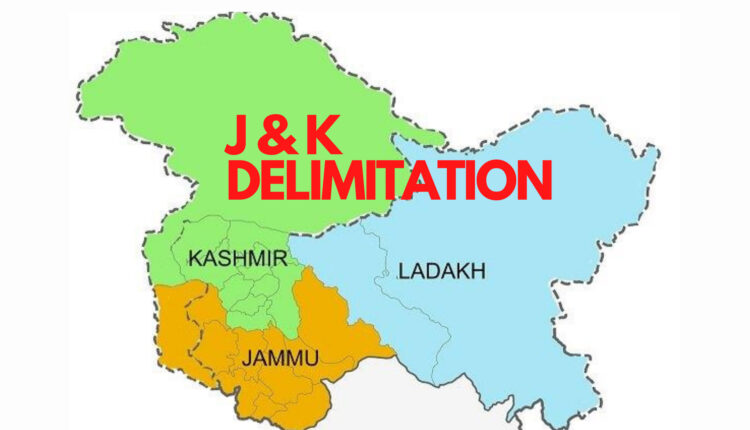NEW DELHI, DECEMBER 18: As the Delimitation Commission gets ready to discuss the proposed allocation of constituencies in Jammu and Kashmir districts with its five MPs, it is learnt that the draft delimitation proposal was prepared without examining the exact basis of the last delimitation award given in 1995, as the relevant report has mysteriously gone missing and could not be not furnished to the panel headed by Justice (Retd) Ranjana Prakash Desai.
Quoting sources, Times of India on Saturday reported that the current Delimitation Commission had sought the report of its predecessor panel, presented by chairperson Justice K K Gupta in 1995, from the J&K government around a month back. The purpose was to study the basis on which it had allocated the seats to the three regions of Jammu, Kashmir and Ladakh, so as to assess and correct any anomalies in the current exercise.
However, the UT administration reverted saying that the report of Justice K K Gupta commission — set up under the J&K Constitution and J&K Representation of the People Act — was not traceable in either the state assembly, state government records or archives.
As a result, the current Delimitation Commission had to make do with whatever records and figures of the last delimitation exercise are available in the public domain — including the notification relating to the 1995 delimitation award — to put together its first delimitation draft.
A source indicated that the search for Justice K K Gupta panel report began much earlier, around the time of abrogation of Article 370 in J&K on August 9, 2019. However, the report was nowhere to be found, leaving officials baffled as to how such an important document, which may have had more than one copy, vanished from all records. An official even indicated that it may be several years and, possibly, decades since the report is missing.
Interestingly, all the elections in J&K since 1996 have been held based on the delimitation award given in 1995. The tentative allocation of seats worked out by the panel led by Justice (Retd) Desai with chief election commissioner Sushil Chandra and chairman of J&K state election commission as ex-officio members, takes into account facts gathered during its tour of J&K in July this year.
Around 280 representations were received from various groups and 900 persons appeared before the commission. As per indications, while the number of constituencies reserved for Scheduled Castes may remain at seven, nine seats may be reserved for , spread over both Jammu and Kashmir regions. The proposed delimitation draft to be discussed with the associate members next week seeks to correct anomalies such as allocation of seats to Kashmir region even where population density is less, while not doing the same for similar areas in the Jammu region.
“For example, there are large but thinly populated constituencies allocated in Kashmir areas like Gurez and Karnah ( ). Yet the same formula was not applied while allocating constituencies in Jammu region, particularly in a big area like Kishtwar with less population density but far-flung habitations,” an officer pointed out, hinting at a possible allocation of additional constituencies in Kishtwar as part of the latest delimitation exercise.
Sources added that there is also likelihood of a separate constituency being carved out of the border district of , to accommodate villages close to the border where the residents have unique concerns like shelling from Pakistan. These concerns can be addressed better if they have their separate MLA, it was felt. The delimitation commission has not just gone by population criteria in earmarking constituencies but taken into account physical features, existing boundaries of administrative units, facility of communication and public convenience, as required by Section 9(1)(a) of the Delimitation Act, 2002.
Once the suggestions of associate members or the five MPs have been considered, the reworked draft delimitation proposal will be placed in the public domain for objections. Public hearings may be held by the panel in Jammu and Srinagar, followed by the final delimitation award.

